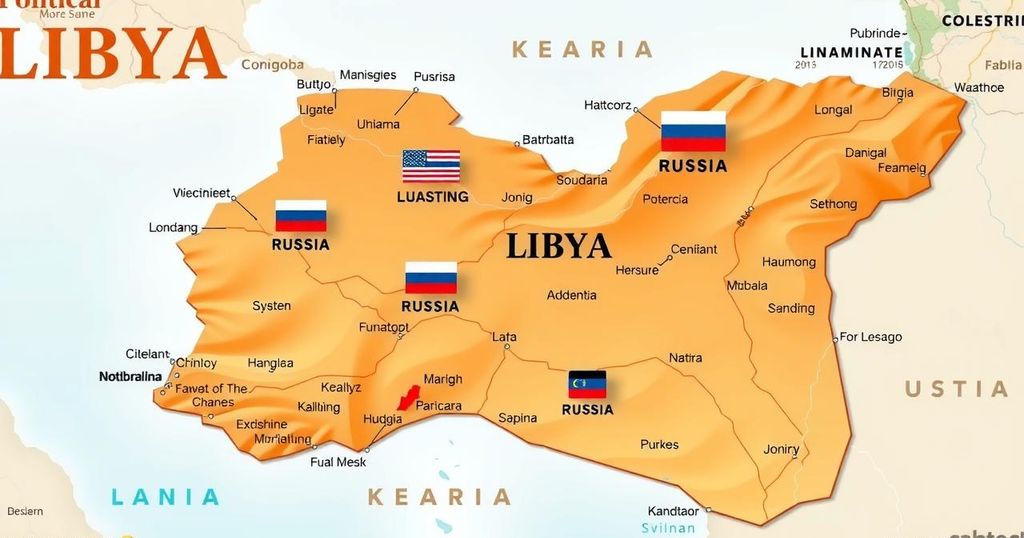U.S.-Russia Tensions in Libya Highlight Ongoing Geopolitical Struggles

Tensions between the U.S. and Russia in Libya demonstrate Cold War-era dynamics, with the U.S. attempting to persuade General Haftar against Russian influence. Despite military exercises involving B-52 bombers, valuable ground remains under Russian control. Saddam Haftar’s efforts towards U.S. engagement offer a glimmer of hope, yet uncertainties in U.S. policy continue to loom.
In recent developments regarding Libya, tensions between the United States and Russia persist, reminiscent of Cold War dynamics. The U.S. has recently conducted a training exercise involving B-52 bombers aimed at persuading local military leaders to diminish the growing Russian military presence in the region, particularly under the influence of General Khalifa Haftar, who controls eastern Libya.
This particular visit by the U.S. last month coincided with Haftar and his sons’ diplomatic gestures towards Russia, notably a visit to Belarus. Analysts indicate that the U.S. strategy, primarily orchestrated by the Pentagon, faces challenges in swaying Haftar, particularly since both the Biden and Trump administrations have shown limited commitment to Libyan affairs.
In a show of U.S. military capability, personnel from Africa Command engaged in joint exercises, inviting Haftar’s forces despite the fragmentation of Libya since 2014. Challenges remain; Haftar openly communicates his reliance on Russian military support in contrast to U.S. offers, which he perceives as conditional.
Amid continued U.S. engagement, Russia has reinforced its military presence in Libya, with troop numbers increasing significantly at the Brak al-Shati airbase. Experts express skepticism regarding Haftar’s potential shift toward the U.S., suggesting that local militia dynamics further complicate military collaboration in the region.
Nevertheless, some analysts express cautiously optimistic viewpoints regarding Haftar’s son, Saddam, who might be more inclined to foster relations with the U.S. His prior engagements signal an interest that could potentially alter Libya’s geopolitical landscape. However, it remains uncertain whether the Trump administration will actively pursue this opportunity, given its inclination towards a reduced overseas military footprint.
The ongoing U.S.-Russia competition in Libya illustrates the complexities of local military dynamics and international diplomacy. As both nations continue to vie for influence through key figures like General Haftar, the outcome remains uncertain. While optimism exists regarding potential U.S.-Libya relations through Haftar’s son, the broader geopolitical strategy may not fully support these efforts, indicating a potentially constrained American presence in the region.
Original Source: www.defensenews.com








